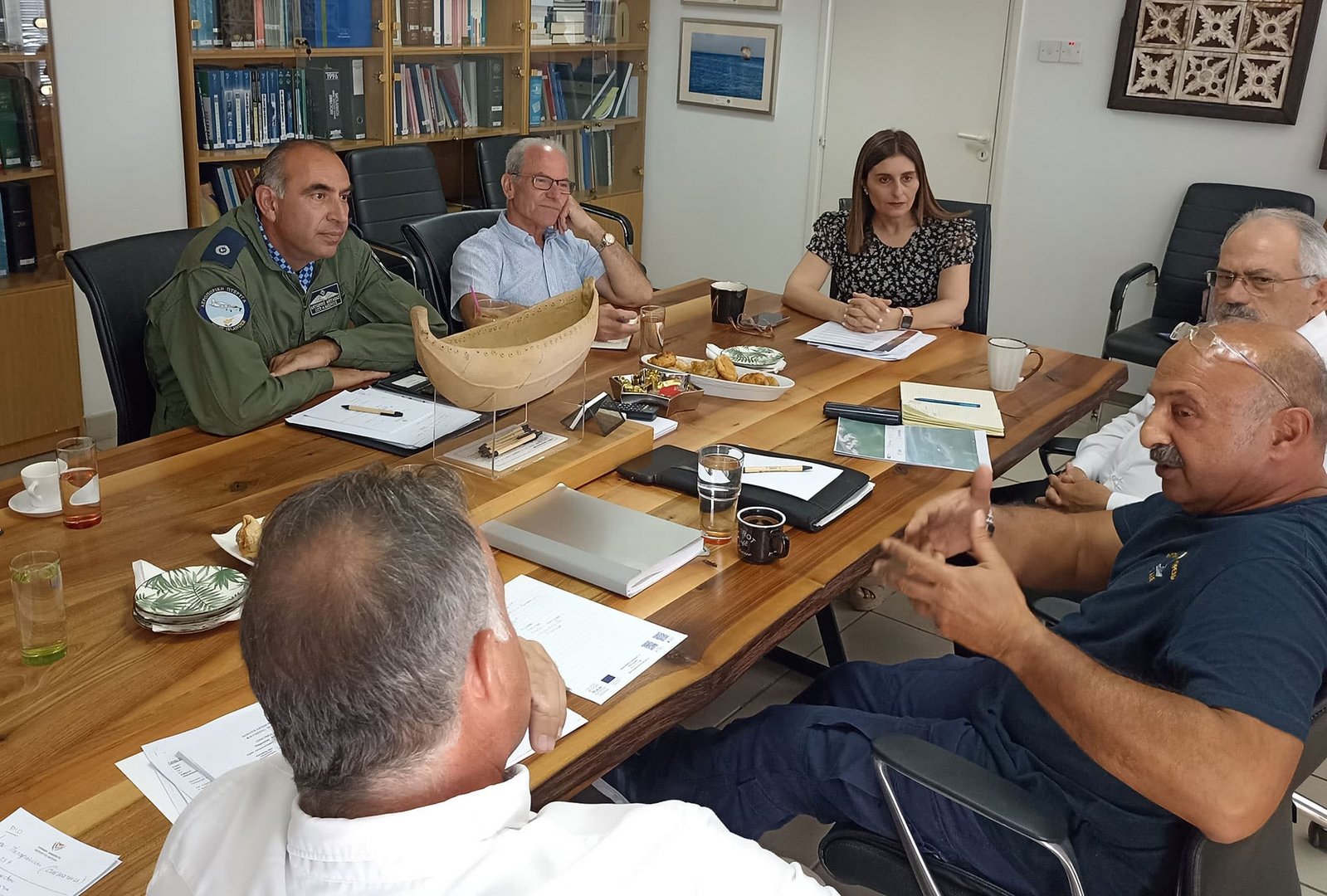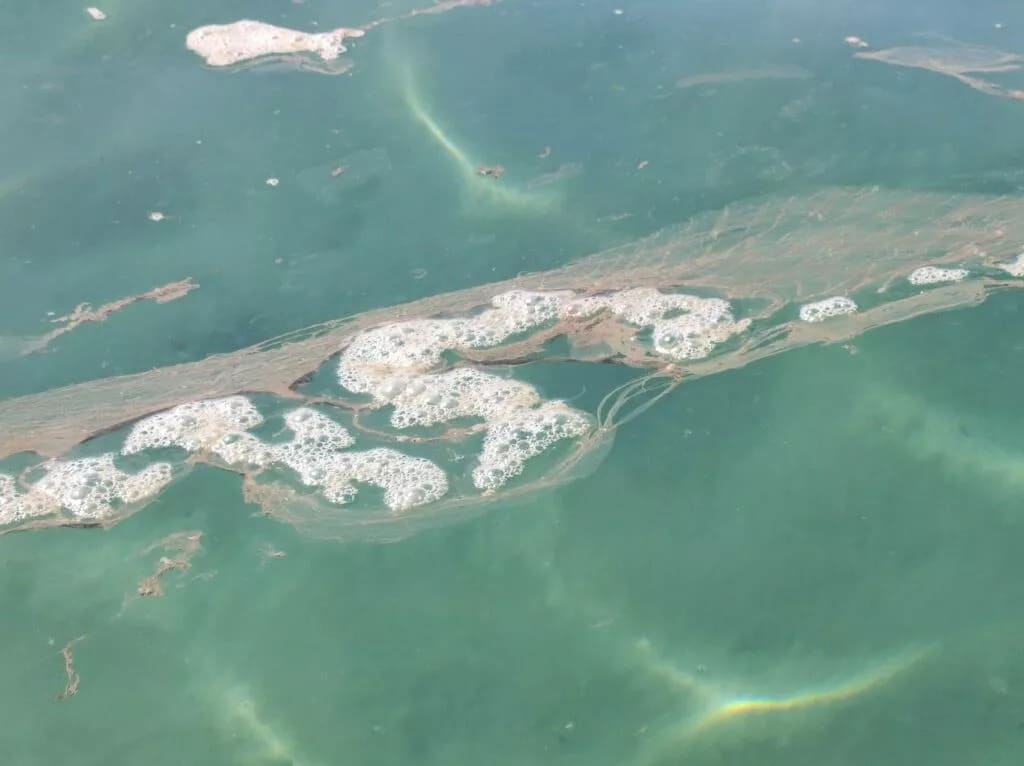Authorities have come together to take coordinated action over rising sea pollution in Limassol, the Deputy Ministry of Shipping announced.
The announcement follows concerns expressed by frustrated Limassol residents earlier in the week over dirty waters in the ‘Thalassaki’ and Dasoudi area and the posting of pictures showing brown foam scum and other debris floating on the water’s surface.
Shortly afterwards, the municipality issued a statement saying that measurements revealed no microbial contamination of the waters.
But bathers nonetheless were put off by the scum and avoided swimming for several hours, while Philenews reported that would-be-swimmers over the weekend were torn between cooling off from high temperatures and having to swim in foul-looking waters.
“I have only been in the sea once this year, I don’t even go anymore,” longtime Limassol resident Natasa Georgiou told the Cyprus Mail.
“This happens every single summer and I am completely fed up with the authorities making a mockery of people,” the disgruntled resident added.
“How can we possibly be getting ‘Blue Flag Beach’ awards given this situation? Everything is being done for short-term profit without any care for irreparable damages caused to the city.”
Deputy Shipping Minister Marina Hadjimanoli, meanwhile, who called a meeting on Tuesday with the goal of bringing together all services involved, told the CyBC that it was important to discover and deal with the sources of the pollution.
The deputy minister detailed that although some indications pointed to fish farms, the problem was likely more complex and the result of a number of factors.
Hadjimanoli reiterated that the municipality had carried out its assigned responsibility – to take measurements on contaminants – and had found no evidence of harmful bacterial contamination, nonetheless she acknowledged the scum was off-putting and undesirable.
“Suggestions have been made which we will evaluate later and there will be another meeting on September 6, [to] reach the desired result, which is above all the protection of the sea,” Hadjimanoli said after the joint meeting of all relevant services.
“We believe that surveillance is the main tool so that we can get to the person or people who are really causing the problem and deal with it,” she added.
Regarding penalties that apply in cases of non-compliance with marine pollution legislation, Hadjimanoli said that a review of legislation had been started.
“If any amendment needs to be made [to increase fines], we will not hesitate to do so,” the deputy minister said.
Limassol mayor Nicos Nicolaidis welcomed the initiative of the deputy minister to convene the meeting and to strengthen coordination of the authorities on the matter.
All parties, including the fisheries department, the port police, the municipality’s health services and a representative of the air operations unit, resolved to intensify efforts and implement stricter controls at marinas and ports and on private yachts.
It was also recommended that aircraft and drones should assist in the detection of unscrupulous persons who pollute the seas with various waste products.
Currently three ships are deployed daily for surveillance and prompt removal of floating pollution from the city’s new port to the Parklane hotel, and a 24-hour line for reporting issues is available at 25-884590.







Click here to change your cookie preferences